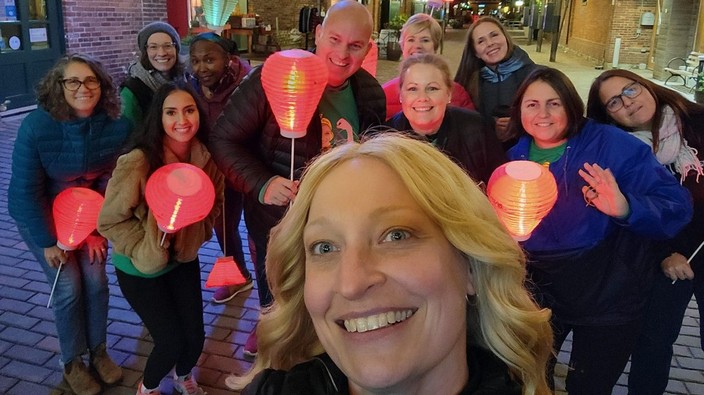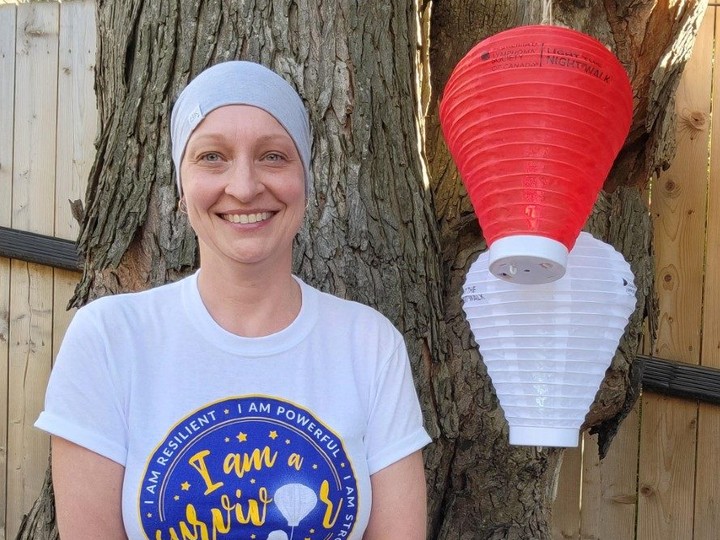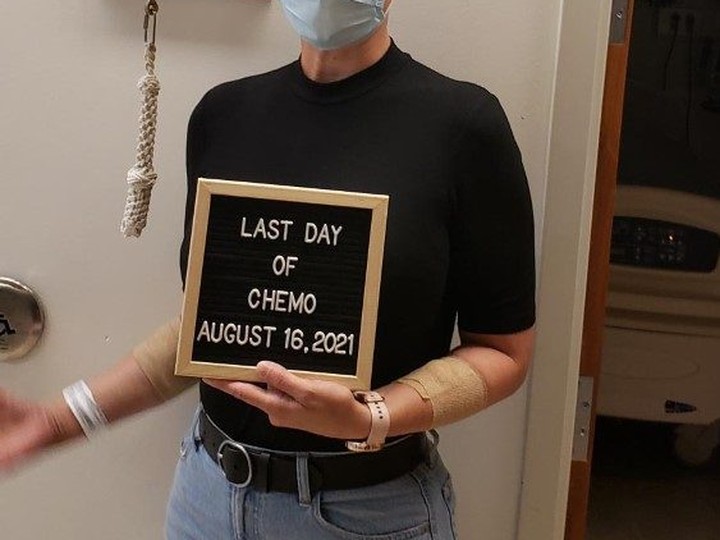about two weeks into the three week treatment, i was doing ok — i was putting cream on my skin every day because radiation is a little like getting a sunburn. by the third week, my skin was red and blistering. it probably took a good two to three weeks [to heal].
although diffuse large b-cell lymphoma is known as an aggressive form of cancer, it tends to respond well to chemotherapy. supplied
once you’d finished radiation, what happened next?
now i am just under surveillance for five years. i go for appointments every three months; it alternates between my hematologist and my radiation oncologist.
how long before you went back to work?
the day i left work was april 12, 2021. i went back on a gradual return to work on may 10, 2022. i actually thought i would go back to work around january and they were like, oh, heck no. i really didn’t realize how much radiation takes out of you.
unfortunately, there was no easing into anything because of the situation that nursing was in when i returned with covid still happening. i was still experiencing some shortness of breath, so trying to work in full ppe gear and in an n95 mask was quite challenging.
it was also hard to get back into the routine of working shifts. i wasn’t sleeping well at night, and then trying to work a 12 hour shift without getting the breaks that you need, with no time to eat the way you should. it wasn’t going be a great basis for recovery. it came to a point where i was becoming very emotionally exhausted. i wasn’t dealing well with the behaviours of patients, visitors, and we were so short-staffed — there’s the expectation of working as three people. i’ve been in my department for 20 years — i always kind of saw myself as a lifer. but i had to make a decision — which was not easy for me — to think about maybe trying out another role. i had to figure out something that was going to work better for my health.
 10 minute read
10 minute read










